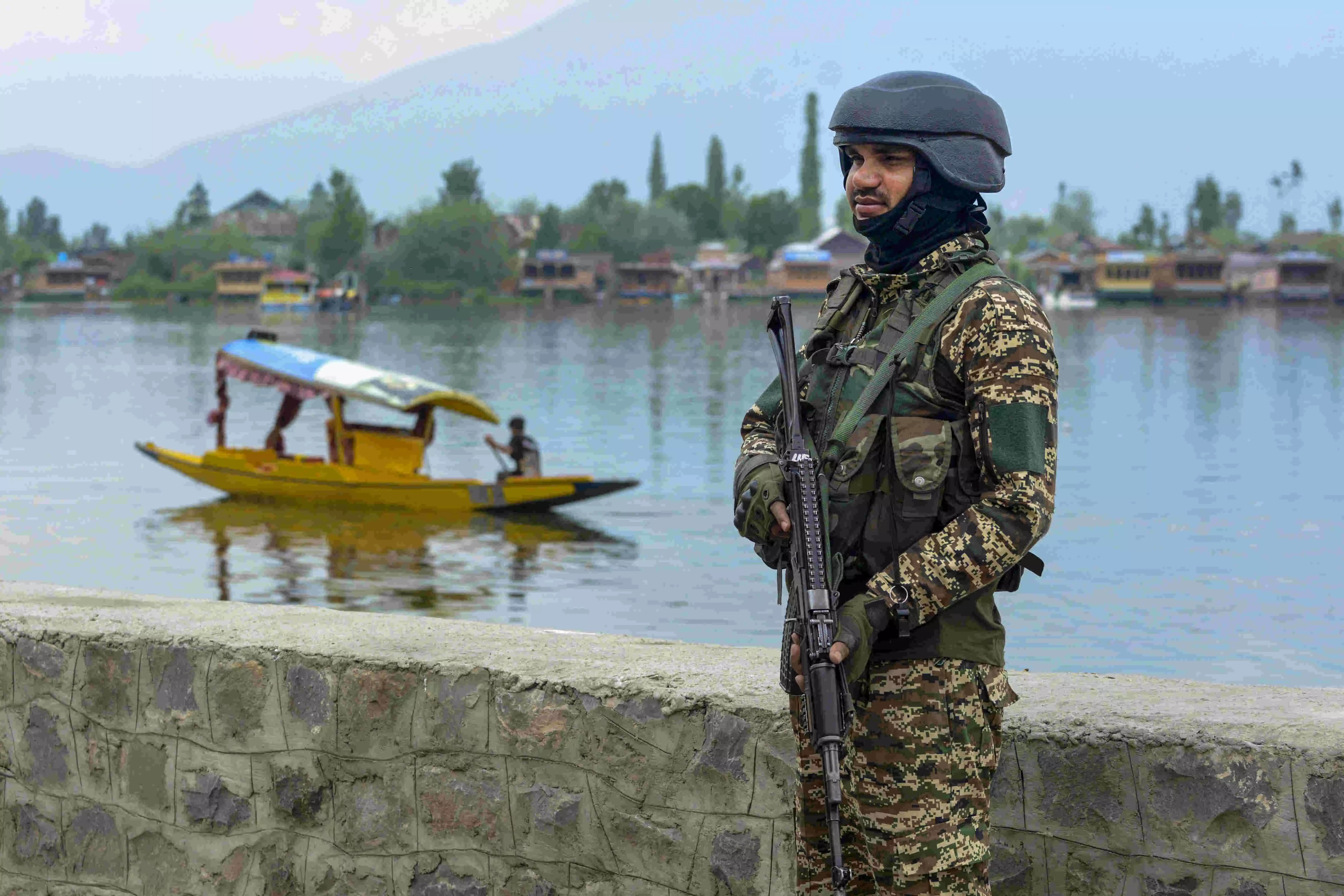Indo-Pak tensions: A geopolitical chessboard of commerce and conflict

The India-Pakistan conflict is often framed as a bilateral issue, but it is deeply intertwined with global commerce and the strategic maneuvering of major powers. Are these tensions merely a stage for mighty nations to settle scores, exploiting developing countries like India and Pakistan? While Pakistan’s role in fostering terrorism on Indian soil is undeniable, recent admissions from its own leadership reveal a troubling broader picture.
On April 22, in Pahalgam, Jammu and Kashmir, 26 innocent men were brutally killed by terrorists who singled them out based on their religion, leaving 26 women widowed in an instant. This horrific act underscores the human cost of terrorism, often linked to groups operating from Pakistani soil. Shockingly, Pakistan’s Defence Minister recently admitted that the country has backed, trained, and funded terrorist organisations for decades, allegedly at the behest of the United States and Britain. “We have been doing this dirty work for the United States for about three decades, you know, and the West, including Britain,” the minister reportedly stated. If true, this revelation implicates not only Pakistan but also Western powers in perpetuating regional instability.
In response to such provocations, on May 7, India launched ‘Operation Sindoor’, where the Indian forces reportedly conducted artillery strikes at nine locations across the Line of Control (LoC), targeting terrorist camps, including one linked to Azhar Mahmood, a notorious figure, along with his associates. The ensuing cross-border skirmishes, halted only by a ceasefire agreement between the Directors General of Military Operations (DGMOs) of both nations, resulted in significant loss of life and property on both sides.
While these violent exchanges unfolded along the Indo-Pak border, a parallel drama played out in Geneva, where the United States and China were locked in tense trade tariff negotiations. Both nations stood firm, but an agreement was eventually reached, signaling a temporary truce in their economic rivalry. Amid this, former U.S. President Donald Trump claimed credit for brokering the Indo-Pak ceasefire, highlighting the U.S.’s role as a global mediator—or opportunist.
The Indo-Pak skirmishes also served as a testing ground for advanced weaponry. China’s J-10, a 4.5-generation fighter jet, hypersonic missiles, and Turkey’s domestically produced drones were reportedly deployed, showcasing their capabilities to potential international buyers. Allegations have surfaced that the U.S. has similarly used conflicts, such as Ukraine’s war against Russia, to test and market its arms. For China and Turkey, the Indo-Pak conflict provided a live demonstration of their military hardware, boosting their aspirations to dominate the global arms trade. For India, the clash reinforced its assertive stance and alignment with the West, while Pakistan’s military-driven policies and external backing perpetuate instability.
China’s stakes in the region run deeper. With investments reportedly exceeding $40 billion in Pakistan through the One Belt, One Road (OBOR) initiative, ports, and infrastructure development, China considers Pakistan an “iron-clad friend.” Beijing’s support for Islamabad is unwavering, driven by both strategic and economic motives. By fueling tensions between India and Pakistan, China achieves multiple objectives: it tests its next-generation fighter jets, drones, and hypersonic missiles, positioning itself as a leading arms supplier; it disrupts India’s economic progress, particularly efforts by companies like Apple to shift manufacturing bases from China to India; and it counters U.S. influence in the region.
Following the gruesome killing of innocent civilians in Pahalgam, Jammu and Kashmir (J&K) witnessed an unprecedented show of solidarity, with the entire region shutting down for the first time in 35 years to protest the alleged actions of Pakistan-backed or Pakistan-trained terrorists. A Kashmiri local remarked that Pakistan, and possibly other neighboring countries, seeks to disrupt the harmony and burgeoning economic growth in the valley, which saw 34 million tourists visit J&K in 2024 alone. Pakistan appears intent on preventing prosperity in Kashmir, as stability could undermine its efforts to internationalise the Kashmir issue.
Experts have raised alarms about the International Monetary Fund (IMF) approving a $1 billion loan to Pakistan; the United States is the major contributor in this sanctioned loan. This loan, once disbursed, could enable Pakistan to purchase arms and other goods from the U.S., indirectly benefiting American interests. This dynamic illustrates how major powers prioritise commerce in their geopolitical strategies, while developing nations like India and Pakistan become entangled in regional conflicts, suffering loss of life and economic derailment as subordinates to these global powers.
In this intricate chessboard, India and Pakistan risk becoming pawns in a game orchestrated by global powers. The Pakistani minister’s admission, if verified, demands international scrutiny and accountability, not only from Pakistan but also from its alleged Western backers. While addressing Pakistan’s role in terrorism is critical, India must also navigate the broader geopolitical currents to safeguard its sovereignty and economic aspirations in the light of the 2025 conflict underscores the evolving nature of Indo-Pak tensions, with drone warfare, cyberattacks, and advanced systems signaling a shift to hybrid warfare. A lasting resolution to Indo-Pak tensions requires not only bilateral dialogue but also an awareness of the external forces profiting from the region’s instability.



